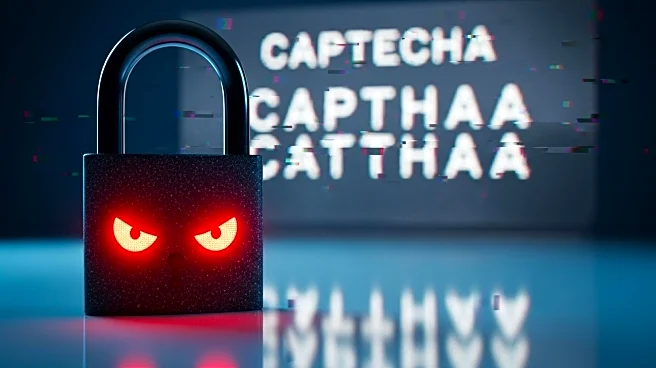What is the story about?
What's Happening?
Cybercriminals are increasingly using artificial intelligence to develop sophisticated phishing scams that employ fake captcha pages to deceive users. These AI-generated captcha pages mimic legitimate verification systems, making it difficult for users to identify them as fraudulent. According to Trend Micro, these phishing campaigns have been active since January, with a notable increase in activity observed in August. The fake captcha pages are hosted on platforms like Lovable, Netlify, and Vercel, which are typically used to simplify application development and hosting. This tactic allows attackers to bypass security filters and capture sensitive information from unsuspecting users.
Why It's Important?
The use of AI in phishing scams represents a significant threat to cybersecurity, as it enhances the ability of attackers to bypass traditional security measures. This development underscores the need for more robust phishing-resistant authentication methods and improved cybersecurity training. Organizations must adapt their security protocols to address these evolving threats, including implementing policies that block newly registered domains and conducting realistic phishing simulations. The ultimate goal is to reduce the value of stolen credentials and minimize the impact of phishing attacks on individuals and businesses.
What's Next?
Organizations are expected to enhance their cybersecurity measures by adopting phishing-resistant authentication methods and improving employee training. This includes realistic phishing simulations and stricter governance of identity logins. As cybercriminals continue to exploit AI technologies, businesses and cybersecurity experts must remain vigilant and proactive in developing strategies to counter these threats.















